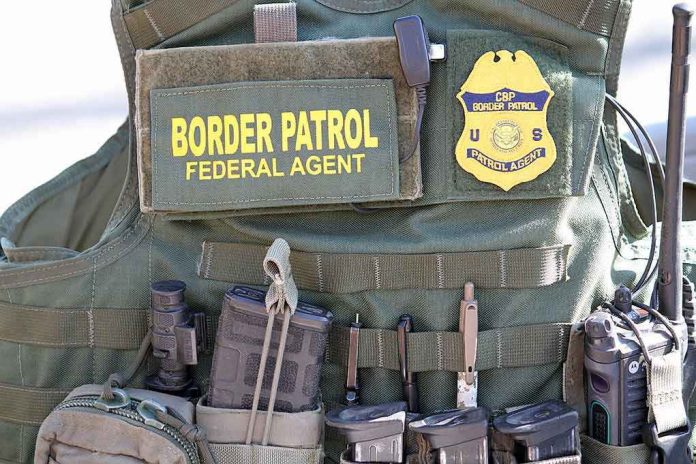
President Trump’s sweeping new immigration crackdown is shaking up the nation, reigniting debate over border security, executive power, and the future of American values.
Story Snapshot
- Trump administration launches aggressive new immigration enforcement policies in 2025.
- Massive expansion of detention, deportation, and expedited removals—impacting families and communities nationwide.
- Executive orders and new legislation ramp up border militarization and empower local police in federal enforcement.
- Critics warn of due process erosion and constitutional concerns; supporters see restoration of rule of law.
Trump’s 2025 Immigration Actions: A New Era of Enforcement
President Donald Trump’s return to office in 2025 has brought an immediate, hardline approach to immigration policy—fulfilling campaign promises that resonated with millions of frustrated Americans.
Within his first months back in the White House, Trump signed sweeping executive orders and championed new legislation targeting illegal immigration, with measures ranging from border shutdowns to expanded deportation programs.
The administration’s stated intent is to restore American sovereignty and public safety, but the speed and scope of these actions have triggered controversy across the nation.
&list=RDNSk0wD4uJ8ET4&index=8
“One Big Beautiful Bill Act”: Massive Expansion of Detention and Enforcement
On July 4, 2025, President Trump signed the “One Big Beautiful Bill Act” into law, allocating a staggering $170 billion to immigration enforcement and detention. This legislation immediately quadruples ICE’s detention budget, enabling the construction of new detention centers—many operated by private prison companies.
The law also strips many lawfully present immigrants of access to health insurance and social benefits, and removes anti-poverty protections for children of immigrants. Federal funding is now reserved for localities that cooperate fully with federal enforcement, penalizing “sanctuary” jurisdictions and further intensifying the national debate over states’ rights and federal power.
Border Militarization and Constitutional Debate
The Trump administration’s policies now include the deployment of U.S. military personnel and hardware to the southern border—aiming to “seal” the border and repel unlawful crossings. Indefinite suspension of most refugee resettlement programs (with rare exceptions) marks a dramatic departure from previous humanitarian commitments.
Critics argue that these moves risk undermining due process, separating families, and eroding constitutional protections, while supporters insist they restore law and order and defend American workers.
The administration frames these actions as essential to national security, insisting that any failure to comply with repatriation by foreign states will trigger U.S. sanctions.
Impacts on Families, Communities, and American Values
New expedited removal processes and the expansion of the 287(g) program, which deputizes local police, have already led to increased family separations and fears among immigrant communities. Massive funding for immigration-related criminal prosecutions and new fees for asylum seekers add further barriers for those seeking refuge.
The Trump administration remains steadfast, saying these steps are necessary to protect American jobs, values, and citizens.
Sources:
Protecting The American People Against Invasion – The White House
100 days of immigration under the second Trump administration
The Trump Administration Moves to Reinstate Restrictions on Legal Immigration Proposed in First Term





